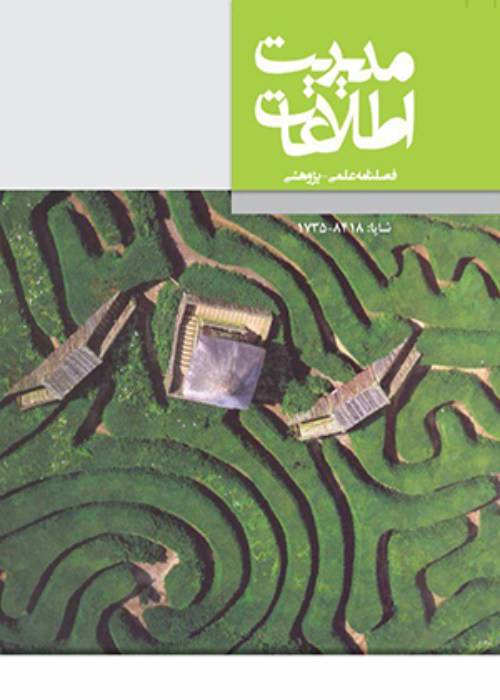Investigating the Triple Factors Bandura's Social-Cognitive Theory on Users' Interaction with Iranian Academic Digital Libraries
Author(s):
Article Type:
Research/Original Article (دارای رتبه معتبر)
Abstract:
The aim of this study was to investigate the Triple Factors Bandura's Social-Cognitive Theory on users' interaction with Iranian academic digital Libraries. For this purpose, 384 people were selected as members of the research sample using two sampling methods (cluster random sampling and stratified random sampling) from the community of university users. The face and content validity of the questionnaires were evaluated using the opinions of experts and the construct validity was calculated using factor analysis. The reliability of the questionnaires was also confirmed using Cronbach's alpha method (0.948). In order to analyze the quantitative data related to the research question from descriptive and inferential statistics with the help of SPSS software. To test the qualitative date related to the research question, descriptive and inferential statistics were used applying SPSS software and for testing the model and hypotheses, Amos software was applied. The results of the research in the quantitative part showed that personal (cognitive) factors with a coefficient of 0.37, behavioral factors with a coefficient of 0.36 and environmental factors with a coefficient of 0.42 have an effect on the information retrieval interaction of university digital libraries. From the results of structural equation modelling, it was concluded that the intensity of personal (cognitive), behavioral and environmental factors in three dimensions of interaction in academic digital libraries are strong, and digital libraries need to pay more attention to these components in order to perform optimal information retrieval and develop interactive software.
Keywords:
Language:
Persian
Published:
Information management, Volume:7 Issue: 1, 2021
Pages:
63 to 89
https://magiran.com/p2332305
مقالات دیگری از این نویسنده (گان)
-
Assessing the Effectiveness of Information Services Marketing at Allameh Tabataba'i University's Central Digital Library
Seiedeh Zeinab Hosseini, *, Esmat Momeni, Mitra Samiei
Journal of Academic Librarianship and Information Research,



